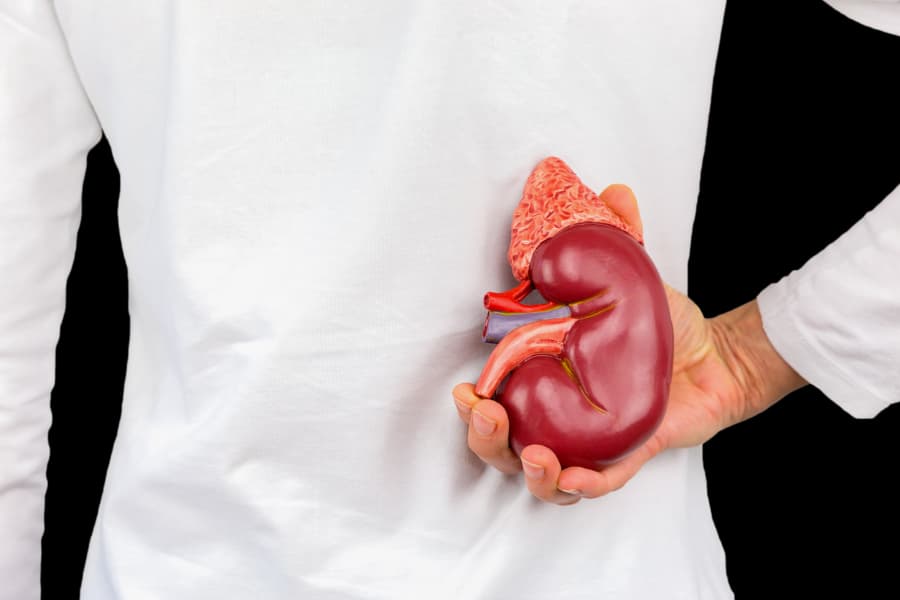Reports suggest about 35.5 million adults in the United States are living with kidney disease. That equates to about one in seven U.S. adults with the condition. What’s even more, many adults who have kidney disease do not yet realize it. Known as the “silent disease,” kidney disease is often asymptomatic in its early stages, and more prominent symptoms usually do not appear until later stages when the kidneys are failing.
Early detection of kidney disease is important because it can help prevent the disease from progressing and potentially avoid the need for more invasive measures. The urology team at Richmond University Medical Center in Staten Island is pleased to offer a full lineup of urology services for women and men. Here, we detail the first signs of kidney disease and the type of care provided by our board-certified urologists.
Kidney Disease Explained
The kidneys play an important role in overall health. Part of the body’s urinary system, the kidneys remove waste from the body, help make red blood cells, help maintain blood pressure, and work to keep bones healthy.
When the kidneys become damaged, they cannot perform these processes effectively. This is what’s known as kidney disease. Aside from preventing the kidneys from carrying out their duties, kidney disease is especially concerning because it increases the risk of other serious health problems, such as heart disease, stroke, and kidney failure.
There are five stages of kidney disease based on how well the kidneys can filter out waste from the blood, also known as glomerular filtration rate (GFR). The stages of kidney disease include:
- Stage 1 (GFR of 90 mL/min or higher): The kidneys perform their duties well but show signs of mild kidney damage.
- Stage 2 (GFR of 60–89 mL/min): Kidneys continue working well but display more signs of mild kidney damage.
- Stage 3a (GFR of 45–59 mL/min): The kidneys no longer work as well as they should and show mild to moderate damage. At this stage, more prominent symptoms associated with the disease begin showing.
- Stage 3b (GFR of 30–44 mL/min): The kidneys show moderate damage and struggle to function as well as they should.
- Stage 4 (GFR of 15–29 mL/min): A person has poor kidney function, and the kidneys are close to not working.
- Stage 5 (GFR of less than 15 mL/min): The kidneys are on the verge of failing if not already. In this stage, a person needs kidney dialysis or a kidney transplant.
What Are the First Signs of Kidney Disease?
In the earliest kidney disease stages, the kidneys can still function normally, leading a patient to believe they are in relatively good health. While the only way to know for sure if a person has kidney disease is to get tested, there are warning signs that could point to a possible positive diagnosis.
The early signs of kidney disease include:
Puffiness Around the Eyes
Protein leaking into the urine is an early sign that the kidneys are not performing as effectively as they once did. This can be due to the kidneys’ filters being damaged. When the kidneys are leaking a large amount of protein in the urine, rather than keeping it in the body, patients can experience noticeable puffiness around the eyes.
Swollen Ankles and Feet
Damaged kidneys can lead to sodium retention. This causes a person to experience abnormal swelling in the feet and ankles. This early symptom can also be a sign of heart and liver disease, which is why testing is critical for proper diagnosis.
Foamy Urine
Another sign of protein in urine due to damaged kidneys is excessive bubbles. Urine resembles the foam produced when scrambling eggs. This is because albumin, the protein found in urine during kidney disease, is the same protein found in eggs.
Other early signs of kidney disease include:
- Less energy and trouble concentrating
- Difficulty sleeping
- Itchy or dry skin
- Feeling the need to urinate more often
- Blood present in urine
- Poor appetite
- Muscle cramps
Testing and Treatment in Staten Island
If left untreated, kidney disease can have severe consequences on a person’s overall well-being. The board-certified urologists at Richmond University Medical Center specialize in diagnosing and treating several conditions affecting the urinary system, including kidney disease.
An accurate diagnosis of kidney disease is essential to ensure successful treatment. Using state-of-the-art equipment and advanced techniques, we administer testing to properly diagnose patients and create personalized treatment plans. We offer comprehensive solutions to help educate patients on their conditions and manage symptoms. Contact us today if you believe you or a loved one demonstrates early signs of kidney disease or to schedule an appointment.




